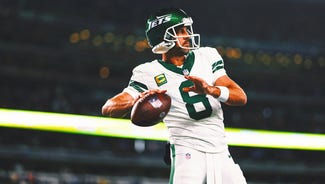





































































































































Marketing execs: Let Sam's play speak for him
Any NFL team that drafts Michael Sam will be taking on much more than a rookie pass-rusher.
But experts say the smart approach for a team that signs the league's first openly gay athlete - from a marketing and public relations standpoint - is to simply let Sam's on-field play speak for him and his team.
''While this is a significant announcement given the sport, the general hope is that he's just accepted as one of the other men on the roster, and therefore his marketability is still simply tied to his ability to play well on the field and ultimately make the team,'' said Paul Swangard, managing director of the Warsaw Sports Marketing Center at the University of Oregon.
Sam declared Sunday that he is gay in interviews with ESPN, The New York Times and Outsports. The Missouri All-American had already come out last August to his coaches and teammates, who respected his privacy.
Now Sam is entering uncharted territory as he prepares for the NFL draft. The SEC's co-defensive player of the year was projected to be a mid-round selection. At 6-foot-2, 255 pounds, Sam will likely have to transition to outside linebacker, which could impact where he's drafted.
But announcing he's gay could also have an impact on his draft status.
''I'm not naive to think there aren't potentially some owners or executives out there who will say, `Eh, I'm not so sure now.''' said Golden State Warriors President and Chief of Operations Rick Welts, who came out publicly in 2011. ''But also, I hope, there are a lot who would say, `There's an opportunity to do something that I think our fans would actually embrace. And if we're supposed to win football games, if this guy helps us win football games, that's somebody we should have on our roster.'''
Sam, 24, joins a growing list of active athletes to publicly come out, including Robbie Rogers, a winger for Major League Soccer's Los Angeles Galaxy, and Brittney Griner, who plays for the WNBA's Phoenix Mercury. Conner Mertens, a kicker for Division III Willamette University, came out as bisexual late last month, and is believed to have been the first active college football player to publicly announce his sexuality.
Griner, as one of the WNBA's brightest stars, was the centerpiece of the Mercury's marketing campaign. She also made a point of supporting causes that are important to her.
''There was nothing about her that was difficult in marketing. We supported what she wanted to do with bullying and the LGBT community. We made those connecting points,'' said Amber Cox, president of the Mercury before leaving to go to the Big East last fall.
Nike has also thrown support to LGBT athletes, signing both Griner and Jason Collins, a former NBA player who came out last year, to sponsorship deals, and launching its ''Be True'' campaign. Profits from the (hash)BeTrue collection are being donated to the LGBT Sports Coalition to support the goal of ending discrimination in sport.
Mark Elderkin of the Gay Ad Network, an online media platform for national advertisers, said NFL teams need only look at Sam's track record.
''They're going to make their choices based on who the best college athletes are. And they're going to choose Michael if they deem him the best pick. So, I think they need to focus on the facts, and his performance over the years, his All-America status and everything he's done for Missouri,'' Elderkin said. ''Also his relationships with the fans, and with the positive energy he has around his teammates and their full support, shows that he's not going to be disruptive to the team in any way, but is going to add value.''
But it's still a reality that gay athletes face a backlash. Derogatory comments were easily found among the positive posts on social media and other online commentary following Sam's announcement.
A Pew Research survey last year of lesbian, gay, bisexual and transgender adults in the U.S. found that just 4 percent saw pro sports leagues as friendly toward LGBT people, while 59 percent saw the leagues as unfriendly and 36 percent saw them as neutral.
Still, even over the past year there have been significant overall victories in gay and lesbian rights, most notably two U.S. Supreme Court decisions in June. One ruling cleared the way for ending a ban on same-sex marriages in California; the other struck down a 1996 law passed by Congress that banned federal recognition of same-sex marriages.
It remains to be seen how growing tolerance extends to the NFL playing field.
''I think the point that's being made in a lot of the discussion is, `Let's just move on,''' Swangard said. ''If the guy makes a team, then he makes the team. His sexual orientation shouldn't be the story.''
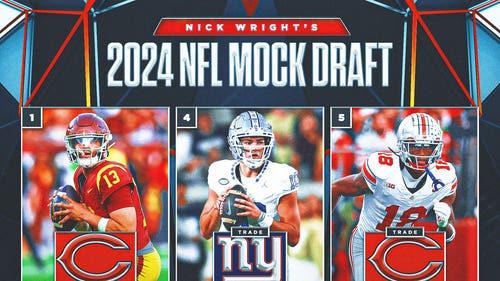
NFL mock draft: Nick Wright has Bears pair Caleb Williams, Marvin Harrison Jr.
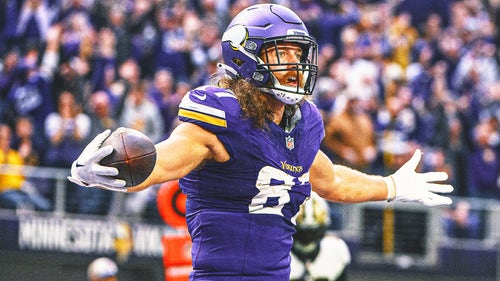
T.J. Hockenson is recovering from an ACL repair and hoping the NFL outlaws the low hit that hurt him

2024 NFL Schedule Release: Date, when does the season start?
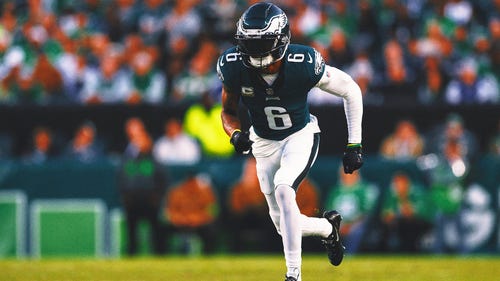
DeVonta Smith receives 3-year extension from Eagles, reportedly worth $75 million
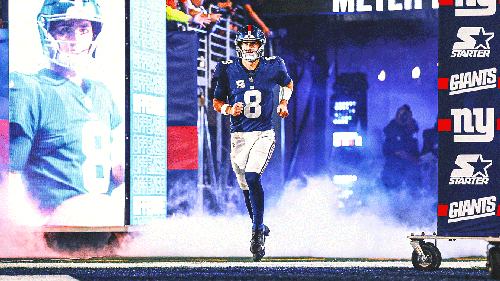
Daniel Jones insists he's the right QB for Giants, and why a QB controversy would be bad
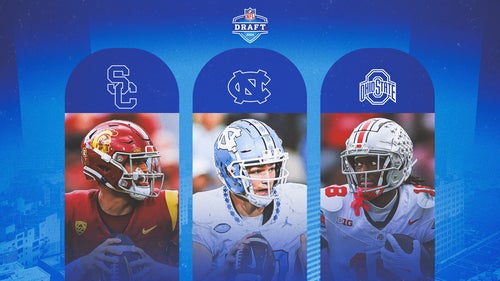
2024 NFL Draft prospect rankings: Top 100 led by Caleb Williams
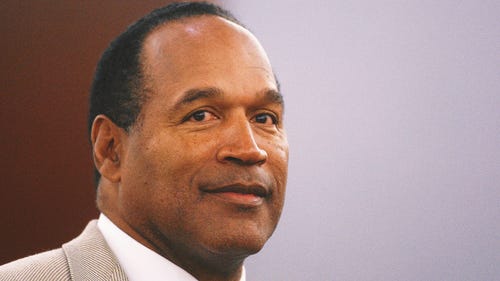
O.J. Simpson's estate plans to fight $33.5 million payout to families of Brown and Goldman
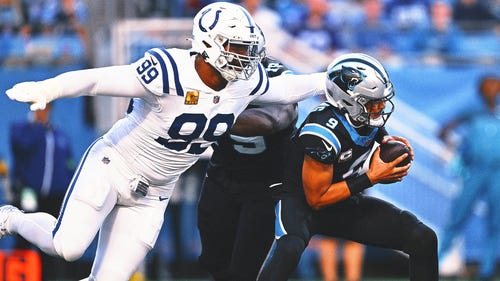
Colts DT DeForest Buckner agrees to two-year, $46 million extension
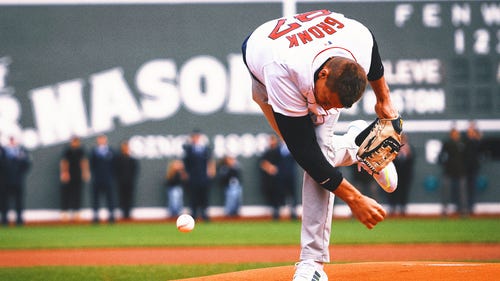
Rob Gronkowski brings 'Gronk Spike' to baseball, spiking first pitch at Red Sox game


NFL mock draft: Nick Wright has Bears pair Caleb Williams, Marvin Harrison Jr.

T.J. Hockenson is recovering from an ACL repair and hoping the NFL outlaws the low hit that hurt him

2024 NFL Schedule Release: Date, when does the season start?

DeVonta Smith receives 3-year extension from Eagles, reportedly worth $75 million

Daniel Jones insists he's the right QB for Giants, and why a QB controversy would be bad

2024 NFL Draft prospect rankings: Top 100 led by Caleb Williams

O.J. Simpson's estate plans to fight $33.5 million payout to families of Brown and Goldman

Colts DT DeForest Buckner agrees to two-year, $46 million extension

Rob Gronkowski brings 'Gronk Spike' to baseball, spiking first pitch at Red Sox game
